With SaaS leadership comes great responsibility, especially if you’re just starting out. A SaaS venture, like any startup, might seem a bit intimidating at first, so it’s of utmost importance to be very open to advice and any helping hand that comes your way. Sometimes it might only be a golden nugget of insight coming from a boss that might really make a difference, another time it could be thoughtful advice coming from a friend which sticks with you during your journey.
These tips and insights that you might receive can come in handy whenever you might feel insecure or unsure if you are heading in the right direction or when you have reached an obstacle in your path.
That’s why we have asked several of our favorite SaaS leaders for the best business advice they have ever received. So buckle up, because you’re in for an insightful ride!
Here’s what they shared:
William Harris, Co-Founder and CEO at Elumynt
“I would have to say, hands down, the best advice is focus. I realized that when I started Elumynt, and even in many other previous jobs. The key to being able to find that success is being able to say, ‘this is the roadmap, how can I go after it?’ If you change directions every couple of steps, you might not get very far, right? And so, I think focus is probably the best advice that I’ve ever received.”
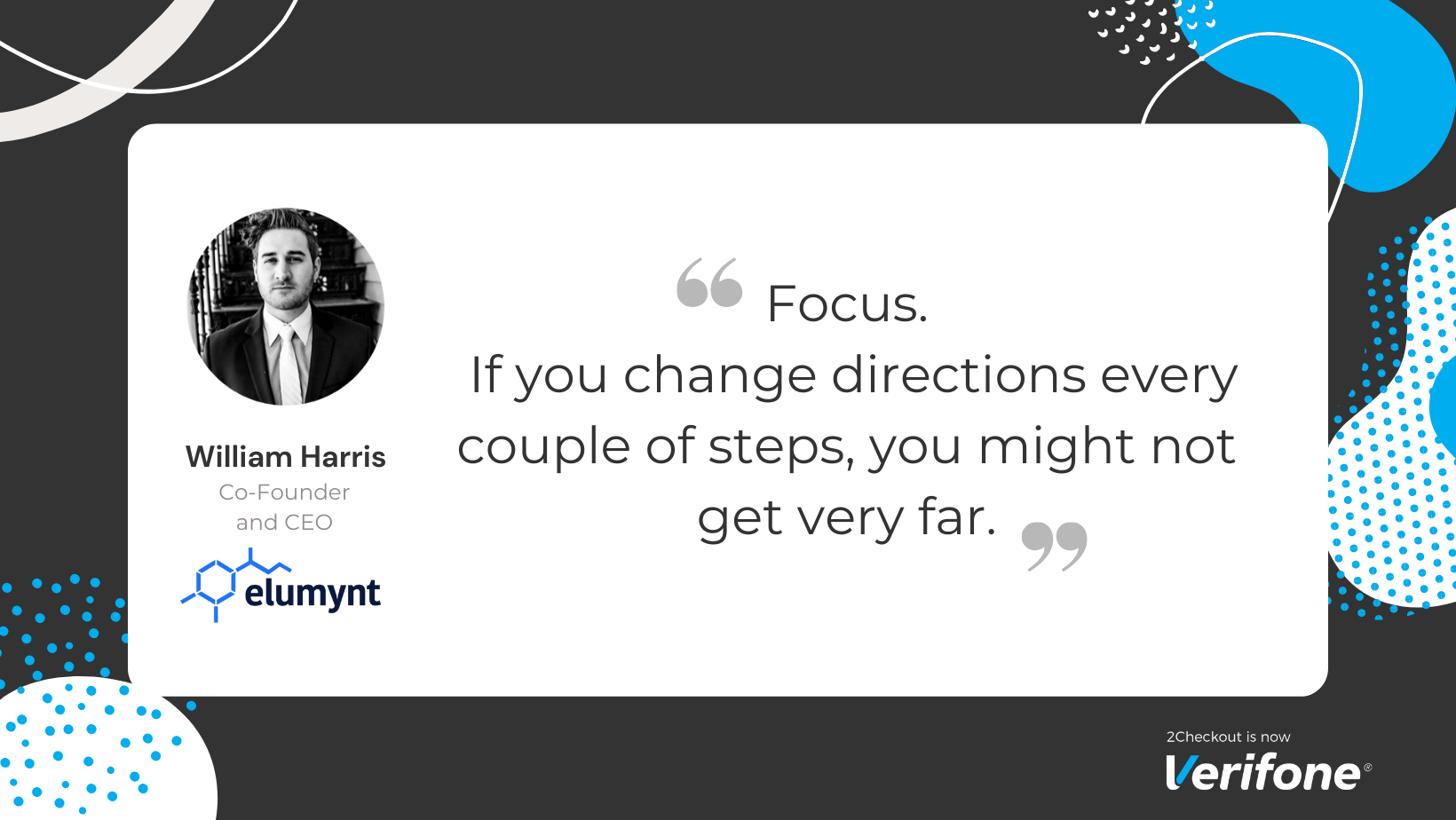
Marvin Liao, Partner at Diaspora Ventures
“Don’t have heroes, be your own hero. The other advice I would say is don’t meet your heroes because you end up being disappointed.
I think it is helpful having heroes, but once you meet them, you realize that they have their flaws but also, they’re just like you and me.”
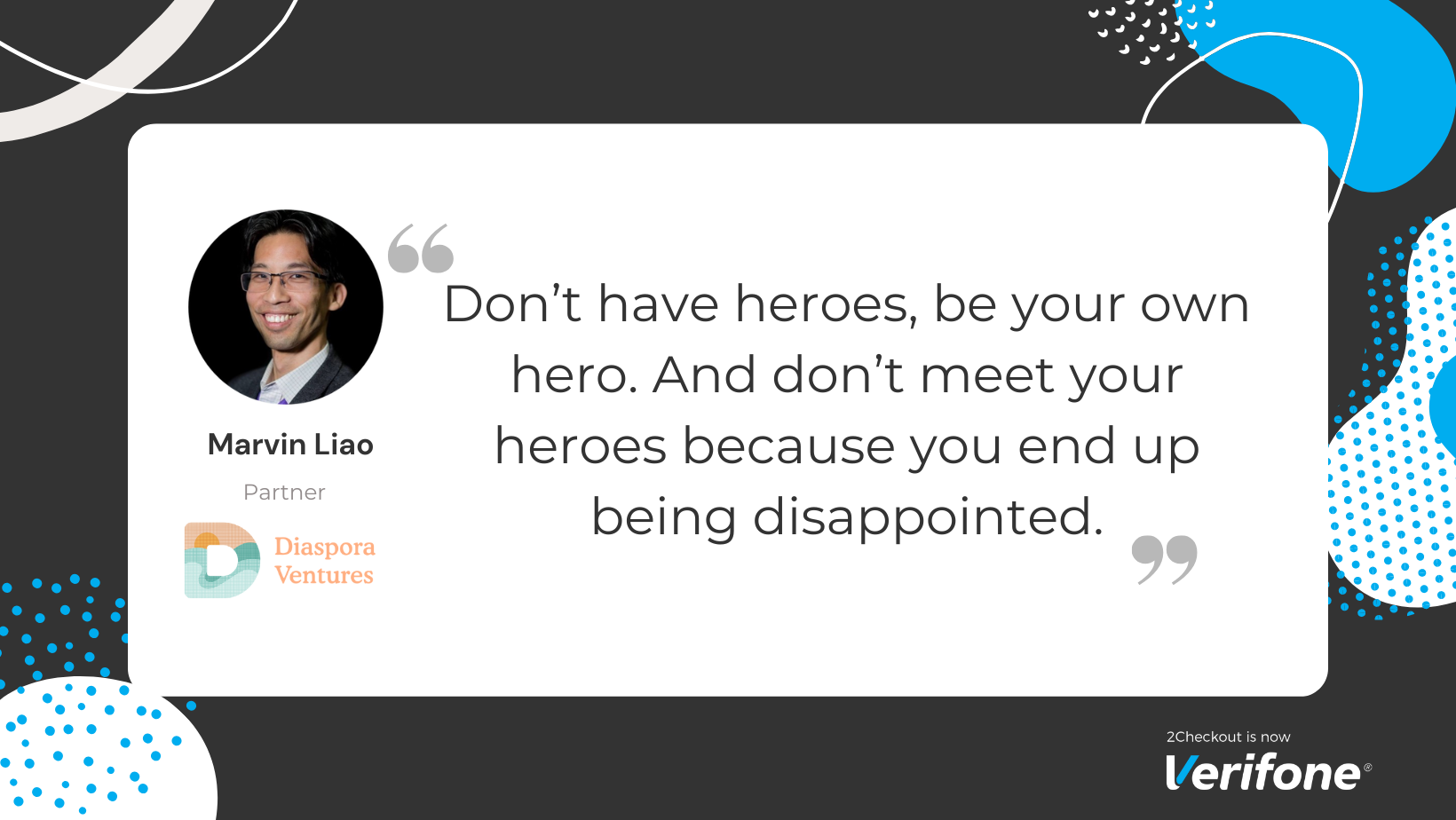
Tamara Grominsky, VP Product Marketing & Lifecycle at Kajabi
“One of the most important pieces of advice I’ve ever received was that you really need to advocate for yourself. It doesn’t mean bragging or looking for ways to always bring your success up. But I feel so many people are afraid to say ‘yeah, I worked on that project,’ or ‘look at this cool thing I did.’ But being willing to advocate for yourself and having the confidence to do so will really help you get ahead and refine what it is that you’re good at.”
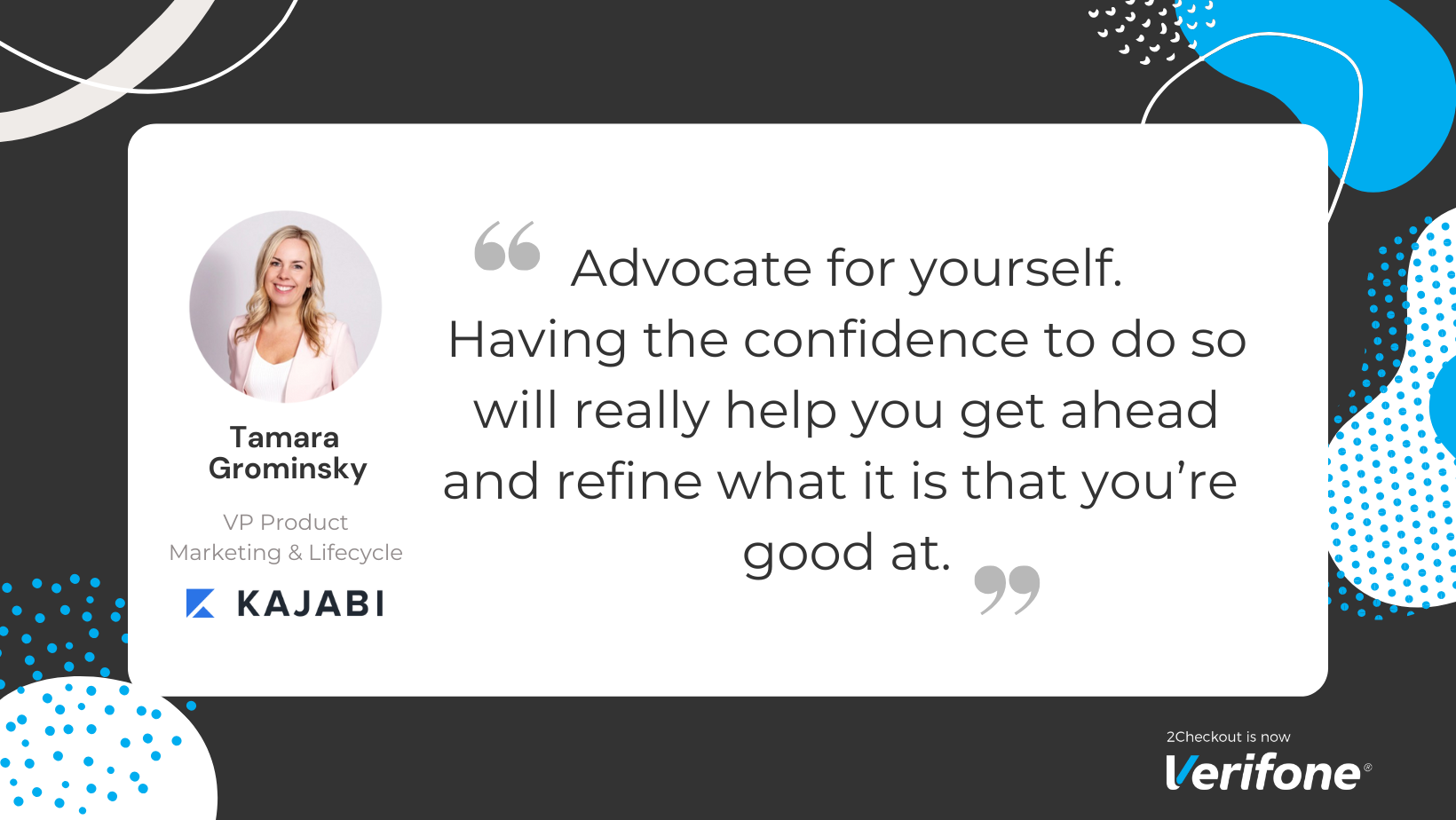
Kevan Lee, Head of Marketing at Oyster
“When I was joining Buffer, it was absolutely amazing that the founders were just wonderful and one of them asked me what I wanted to do at Buffer on the long term, where I saw myself in a couple of years. And this happened just a few weeks after joining so I was like, I’m just enjoying the ride. I had no idea; I didn’t even think about it. And eventually, this evolved into a conversation about personal ambition, and I explained that I don’t feel like I have ambition in the way that I would expect others to have ambition, I don’t feel I need to become a VP of Marketing in two years. I’m not on this particular track to CMO or I want this or the other thing. And it was explained to me that first of all, that’s totally okay, ambition can take many forms. But this approach of just making the most of whatever opportunity is in front of you can be a totally fine approach as well, and I feel like I really took that to heart.”
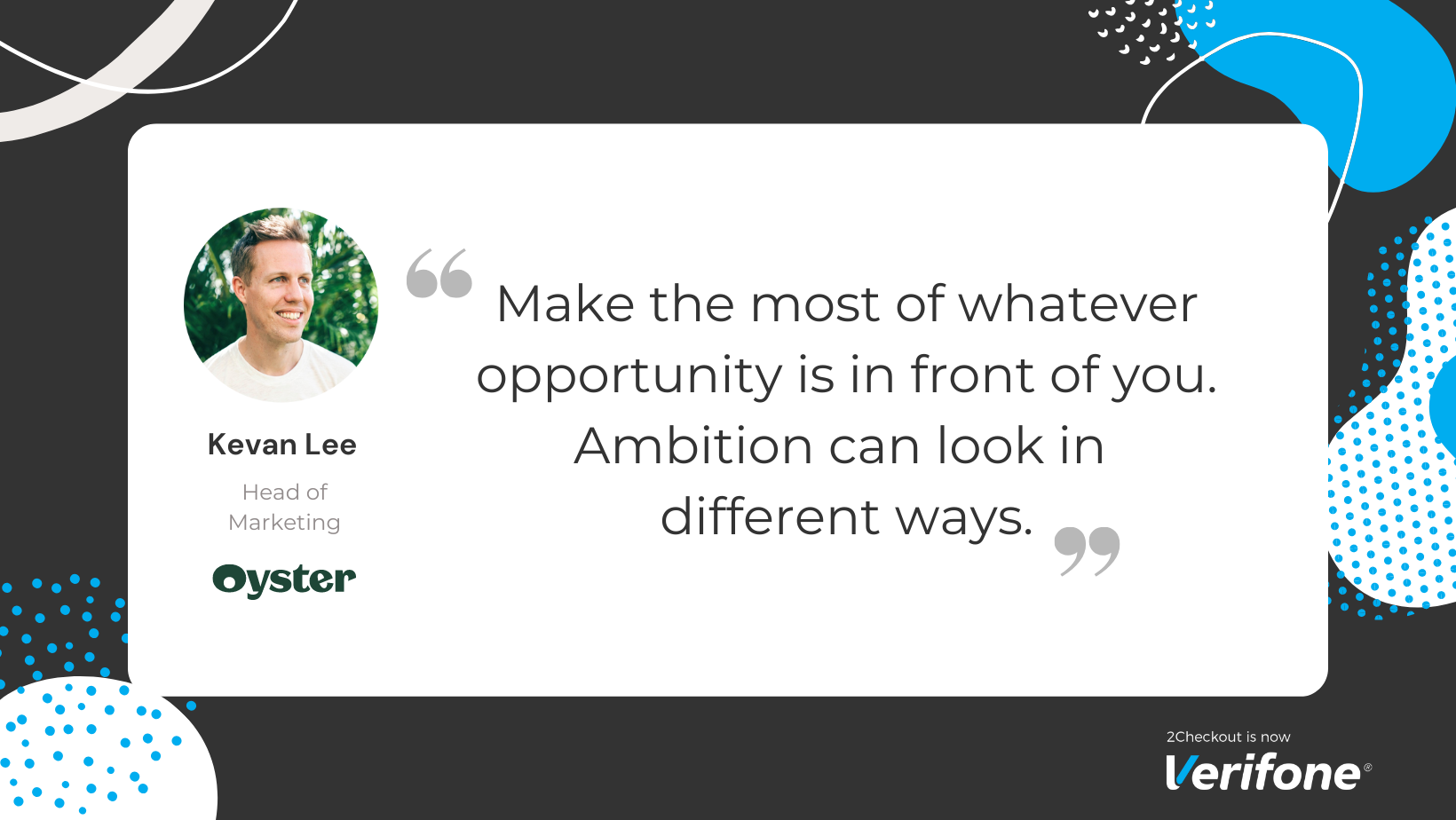
Will Critchlow, CEO at SearchPilot
“I think the best advice I’ve received is not to compare your inside to other people’s outside. In other words, not to compare how you feel with how it looks like other people feel because you can never really tell.
You’ll think you’re a mess of insecurity and uncertainty and that other people are confident and have it together but they’re thinking the exact same thing, only the other way around.”
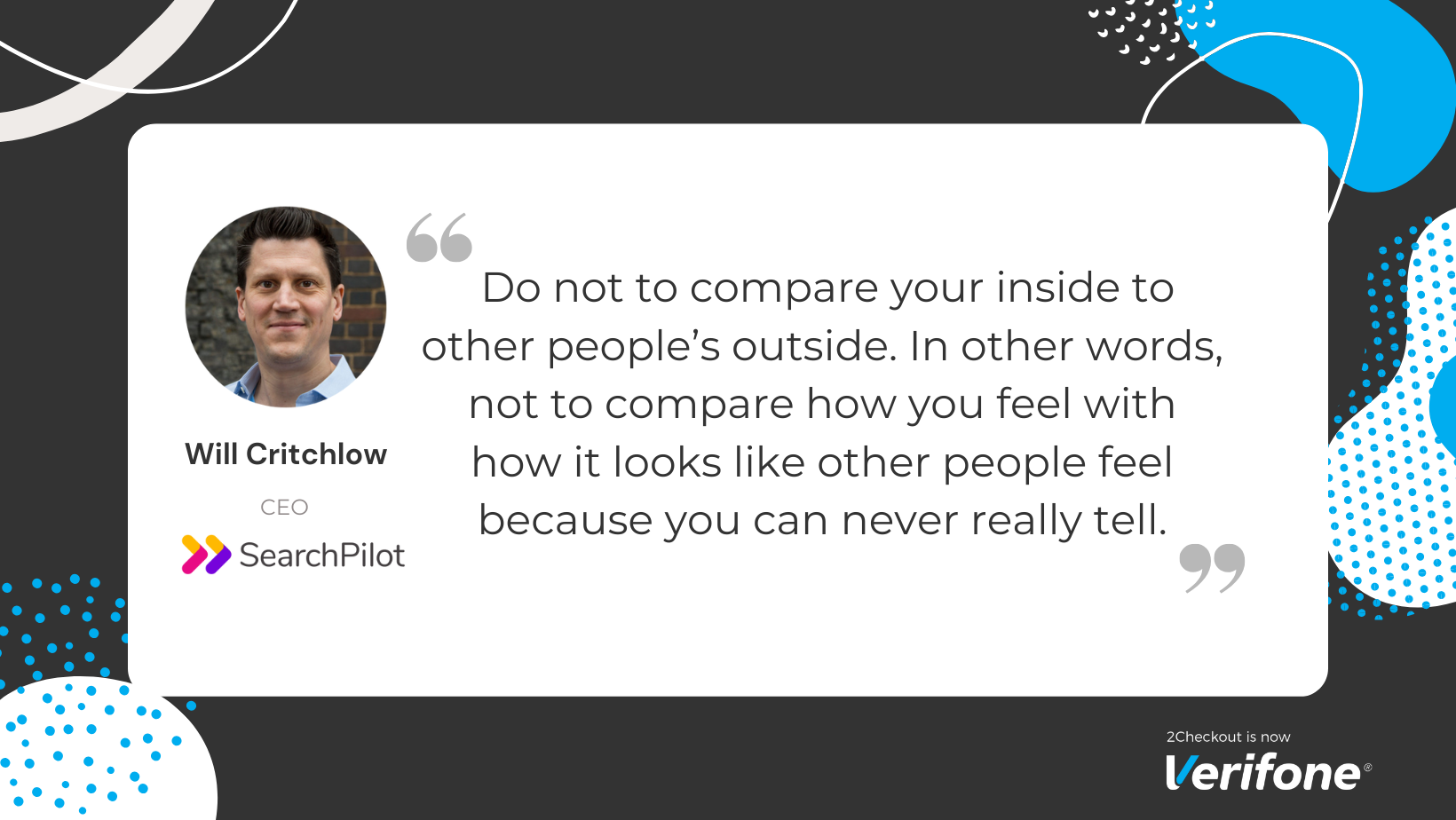
Jane Portman, Co-Founder of Userlist
“In 2013, I was showing my new consulting website to one of my clients, and he said, ‘Jane, your copy is terrible.’ I was like, ‘why is it bad? I don’t make really bad mistakes in English. Why do you say so?’ And he then pointed me towards Joanna Wiebe’s website and that’s how I ventured into this world of business copywriting. And as of today, in spite of being a designer, I still do think that copy is much more important for any business, any website, and any material.”
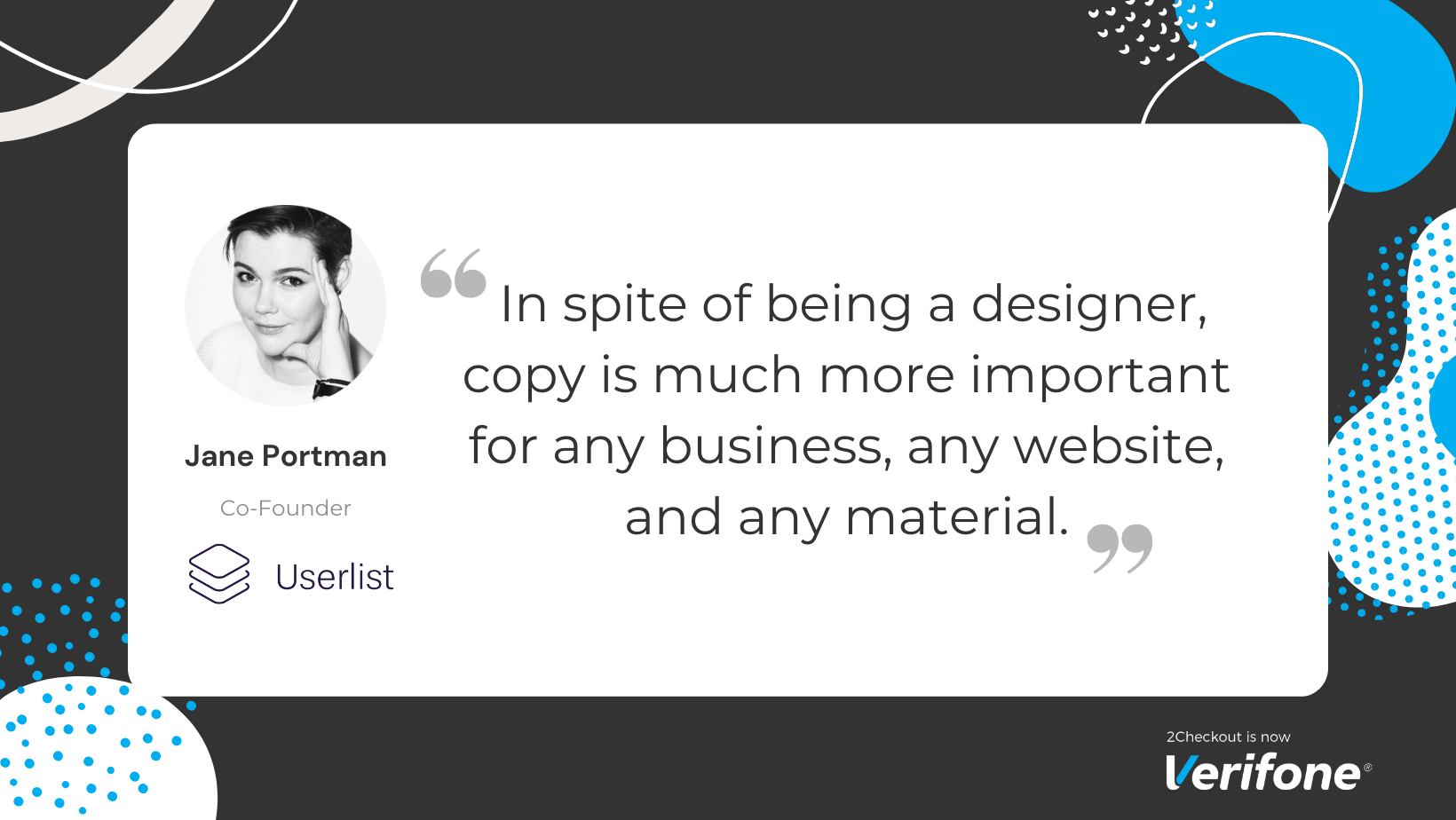
Matthew Howells-Barby, CMO at Decentral Games
“There are a few things that always come back to me. I think that one that’s held true to me, as simple as it is, is that you don’t need to be the loudest person in the room to be heard and in many ways the loudest person in the room is often not listened to. Being able to spend a much greater proportion of my time listening versus speaking, it’s often much easier to get your point across and to influence things that way.”
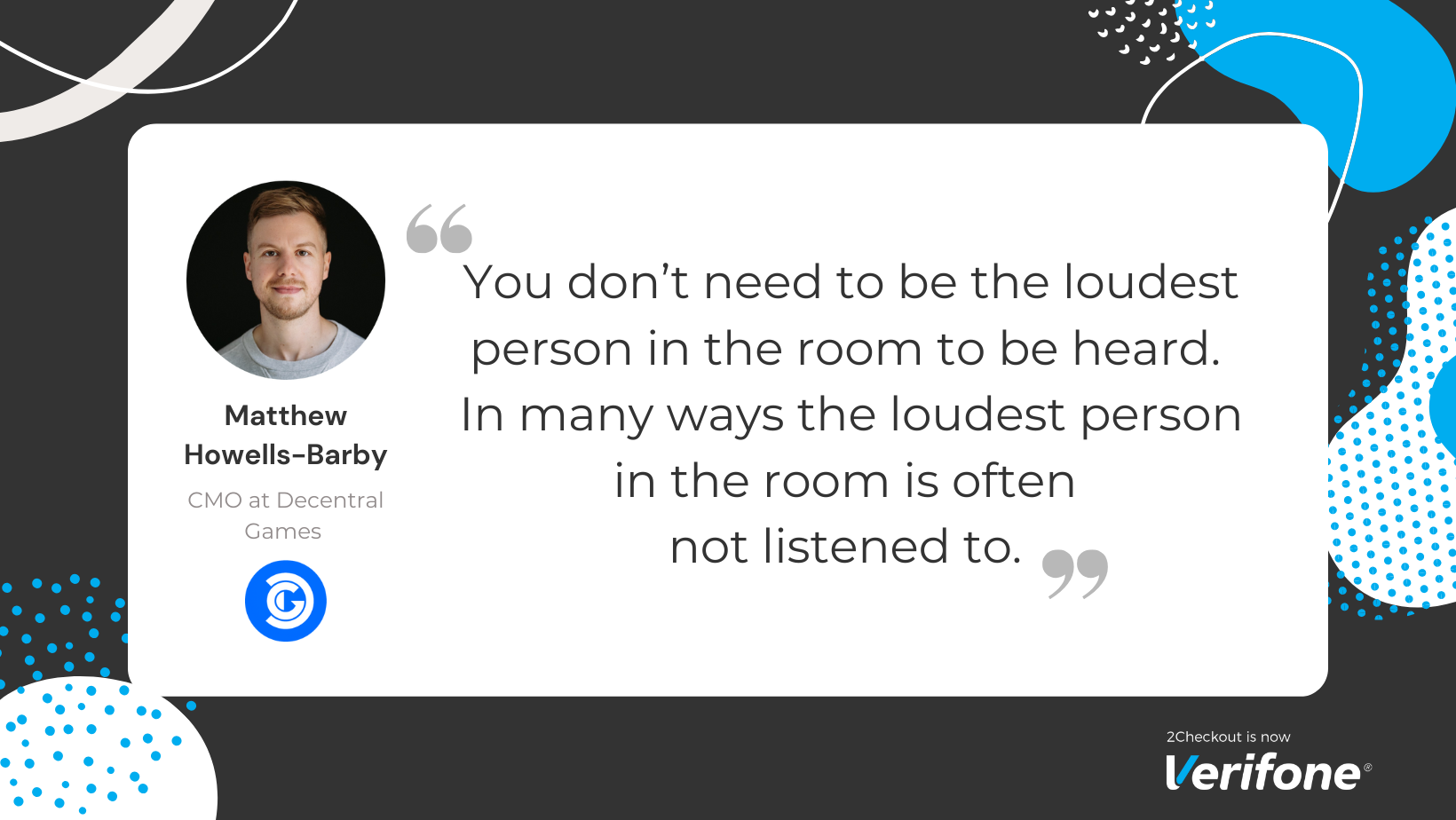
Natalie Marcotullio, Head of Growth and Operations at Navattic
“I think the best advice I’ve ever received is always to think about who’s giving you the advice. I think it’s so often that we want to listen to all advice, and everyone has their own perspectives and backgrounds. But just keeping that in mind, especially in marketing, where everyone wants to tell you about the best new campaign they have run or something that’s all so much success. But always keeping in mind, what was their audience? Why did that work for them? Would that work for me and my audience? Rather than just kind of taking all the advice you get.”
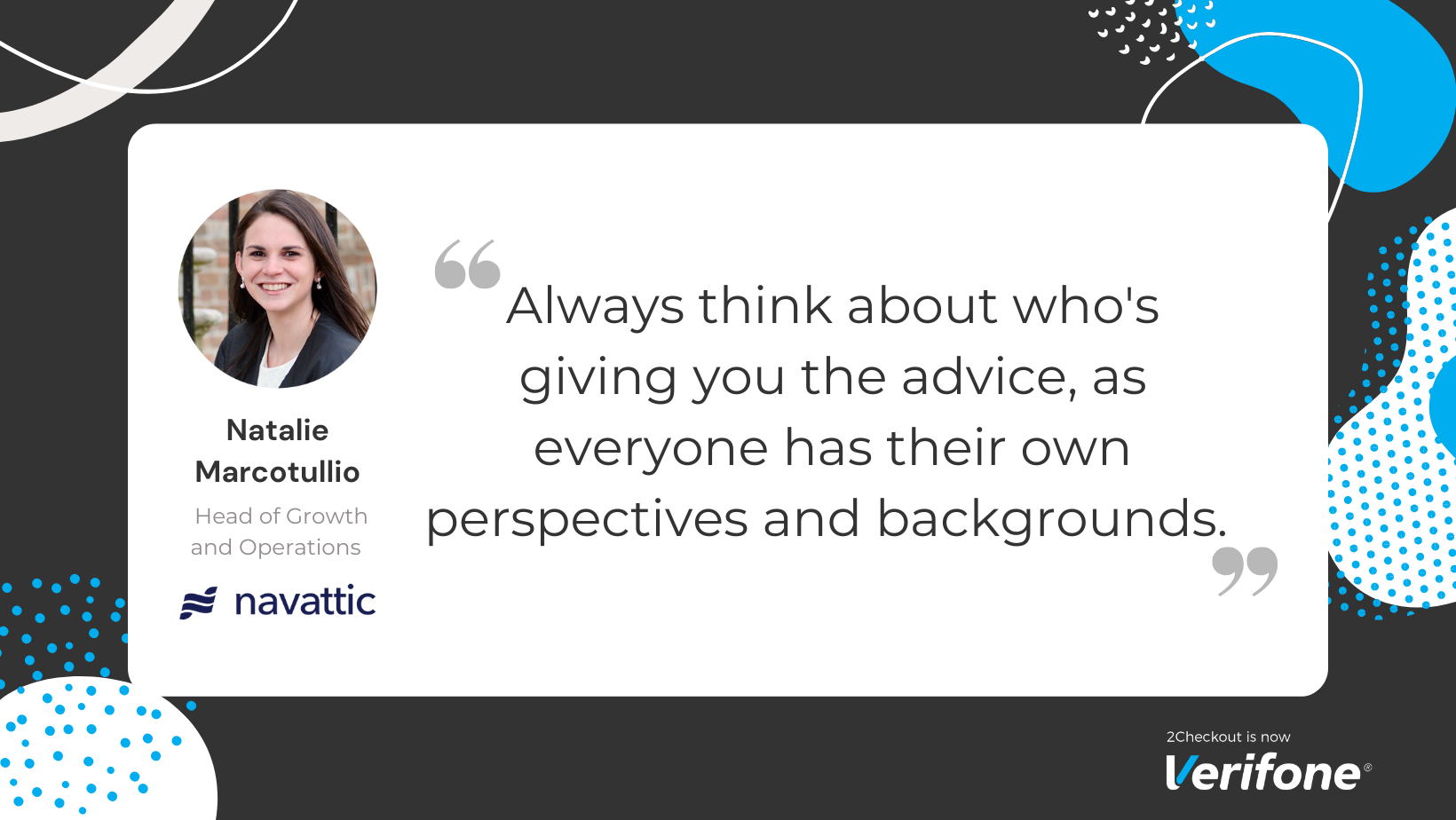
Matt Bilotti, Product Lead, Consumer at AngelList
“I think great opportunities just don’t show up all that often. This is so important because being prepared to take advantage of them when they show up is one of the best things you can do for yourself. You can manufacture opportunities by working really hard and finding your way into being there at the right time.
When those opportunities do present themselves, really take advantage of them because not everyone always gets them all the time, if at all. That advice has just really stuck with me.”
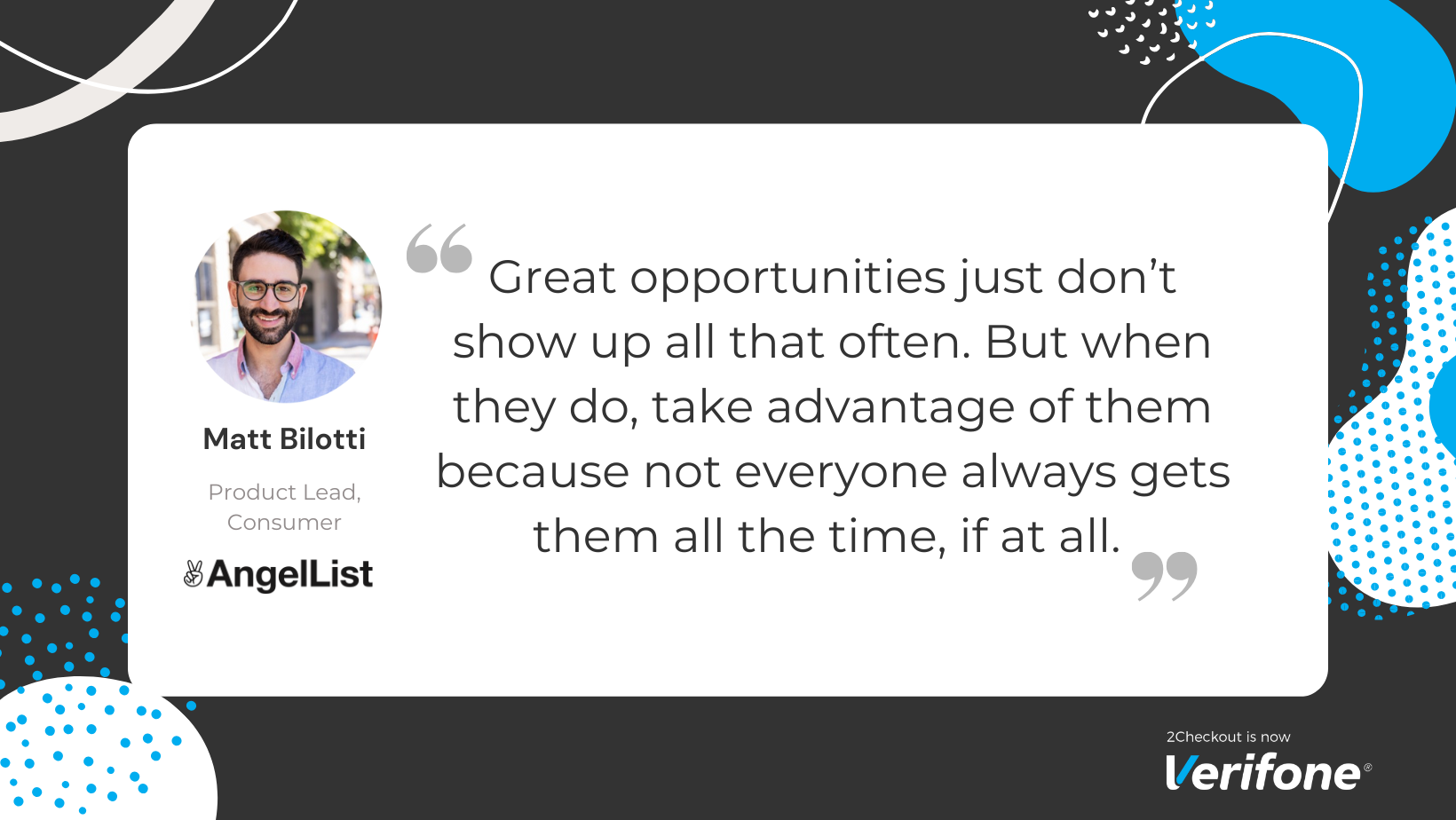
Mariah Hay, Chief Experience Officer at Help Scout
“I think the best advice I’ve ever received is that listening is a superpower. When you are an individual, contributor, designer, product manager, or engineer, listening to your customers, listening to your team members, really hearing and understanding to inform your point of view is very important.
As you become a leader, that shifts and you’re listening to the people that report to you, you’re listening to your teams, you’re listening to the market, you’re listening to your colleagues. I find myself often telling myself to not just talk, but also listen to others to inform my opinion to make sure that I’m hearing others.”
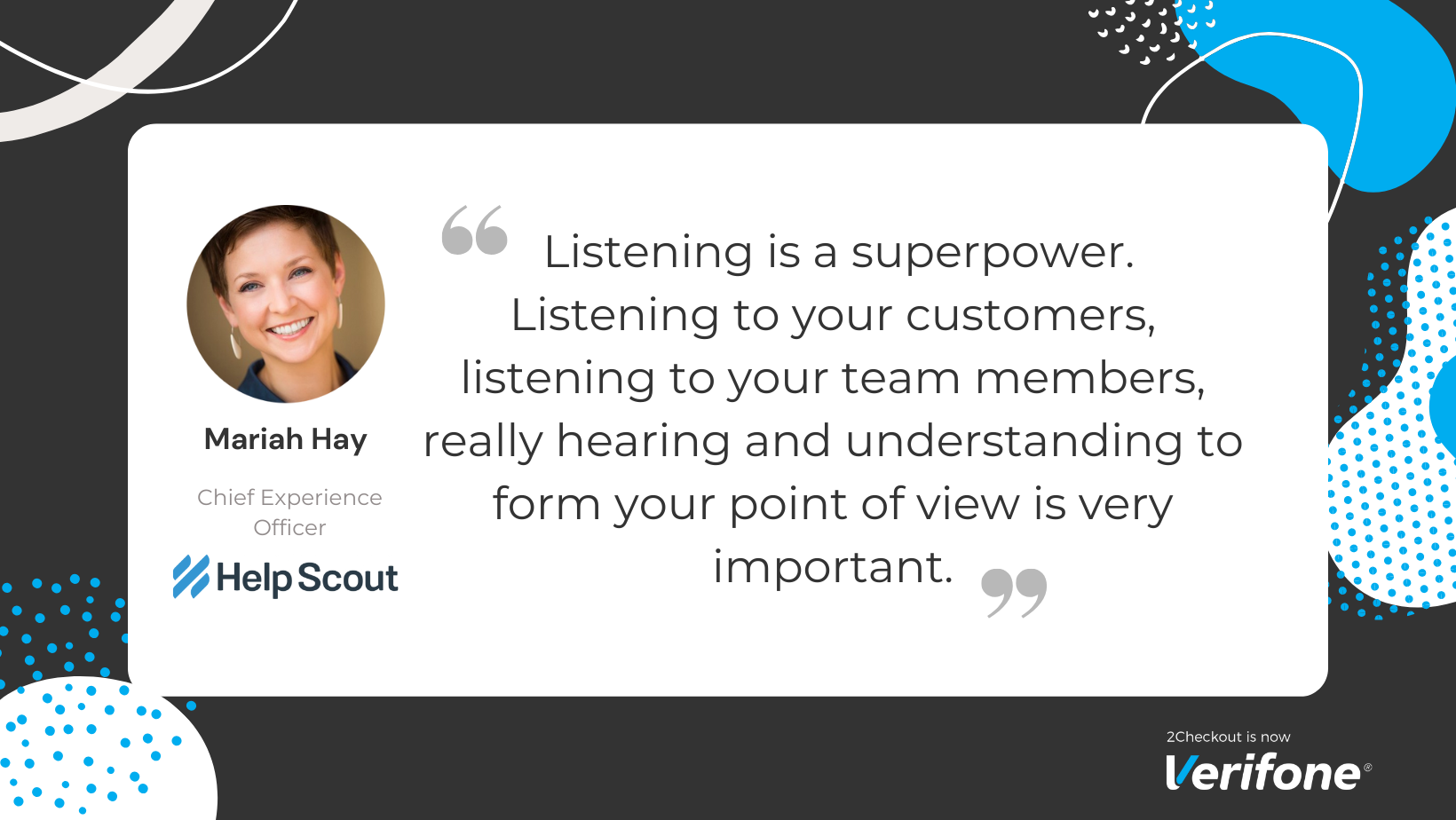
Trevor Hatfield, Managing General Partner of Inturact Capital
“1. Know your ideal customer and the primary job (Job To Be Done) they are trying to solve by using your product.
2. Define “Onboarded” in your product and make sure it aligns with solving this job.
3. Align your entire team around trying to get your new sign ups to achieve your Onboarded goal.
The outcome of this is better-focused acquisition, higher activation rates, and better retention. It’s a relatively simple 3-step process that when done properly has been the most important thing to get right from my experience for SaaS growth.”
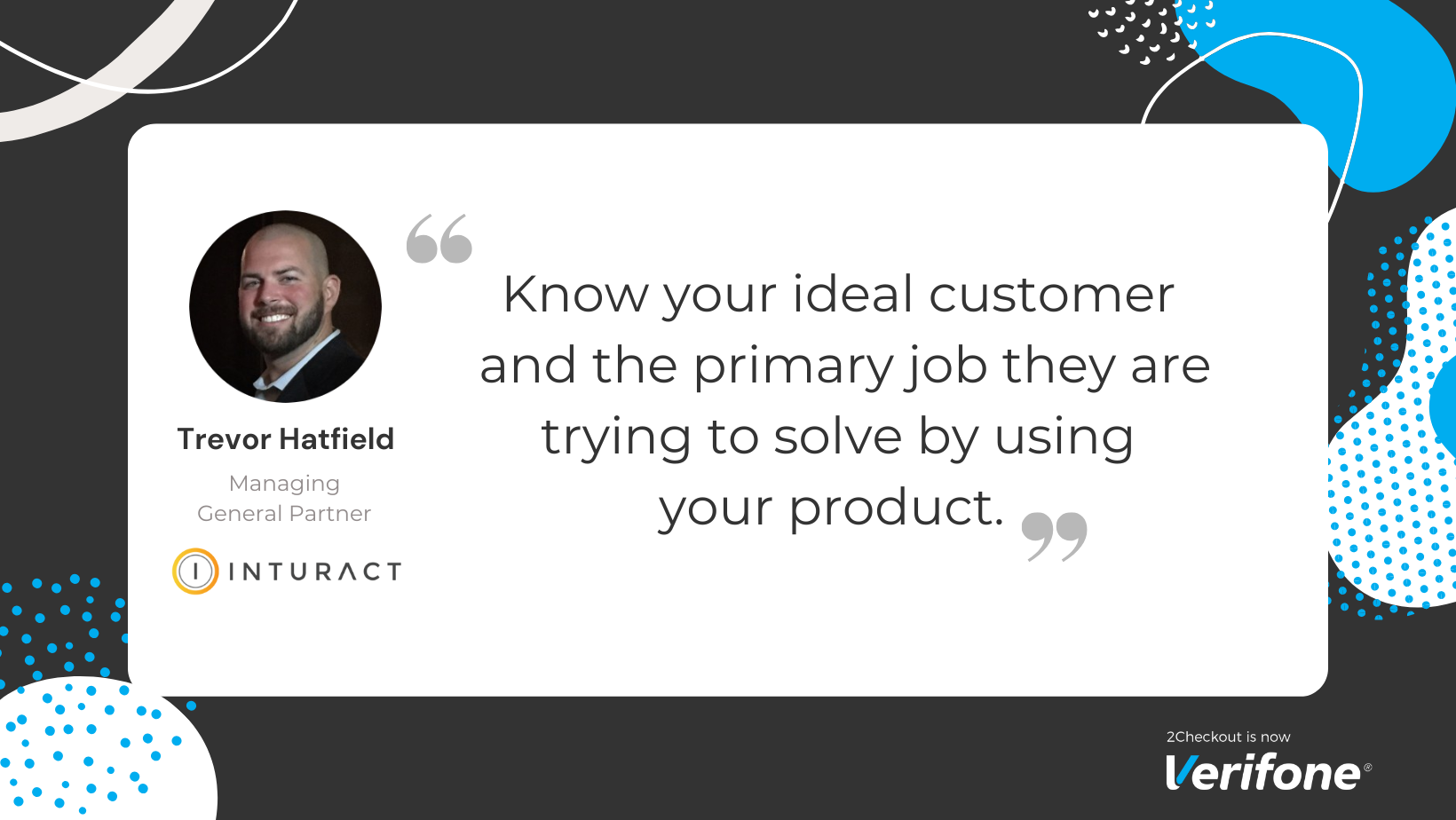
To wrap it up, advice may come in many forms, at various times, and sometimes from a source you wouldn’t expect. But the key aspect here is to take a mental note of them, because you never know when they’ll be of most use to you.
We really hope you found these pieces of advice as inspiring as we did. They might come in handy the next time you are in a deadlock or looking for friendly guidance.
What is the best advice that you have ever received and still sticks with you to this day? Feel free to share it with us in the comment section below! 😊




